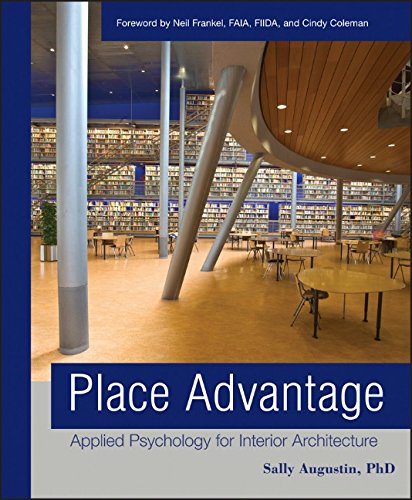

Most ebook files are in PDF format, so you can easily read them using various software such as Foxit Reader or directly on the Google Chrome browser.
Some ebook files are released by publishers in other formats such as .awz, .mobi, .epub, .fb2, etc. You may need to install specific software to read these formats on mobile/PC, such as Calibre.
Please read the tutorial at this link. https://ebooknice.com/page/post?id=faq
We offer FREE conversion to the popular formats you request; however, this may take some time. Therefore, right after payment, please email us, and we will try to provide the service as quickly as possible.
For some exceptional file formats or broken links (if any), please refrain from opening any disputes. Instead, email us first, and we will try to assist within a maximum of 6 hours.
EbookNice Team

Status:
Available4.7
8 reviewsUsing psychology to develop spaces that enrich human experience
Place design matters. Everyone perceives the world around them in a slightly different way, but there are fundamental laws that describe how people experience their physical environments. Place science principles can be applied in homes, schools, stores, restaurants, workplaces, healthcare facilities, and the other spaces people inhabit. This guide to person-centered place design shows architects, landscape architects, interior designers, and other interested individuals how to develop spaces that enrich human experience using concepts derived from rigorous qualitative and quantitative research.
In Place Advantage: Applied Psychology for Interior Architecture, applied environmental psychologist Sally Augustin offers design practitioners accessible environmental psychological insights into how elements of the physical environment influence human attitudes and behaviors. She introduces the general principles of place science and shows how factors such as colors, scents, textures, and the spatial composition of a room, as well as personality and cultural identity, impact the experience of a place. These principles are applied to multiple building types, including residences, workplaces, healthcare facilities, schools, and retail spaces.
Building a bridge between research and design practice, Place Advantage gives people designing and using spaces the evidence-based information and psychological insight to create environments that encourage people to work effectively, learn better, get healthy, and enjoy life.